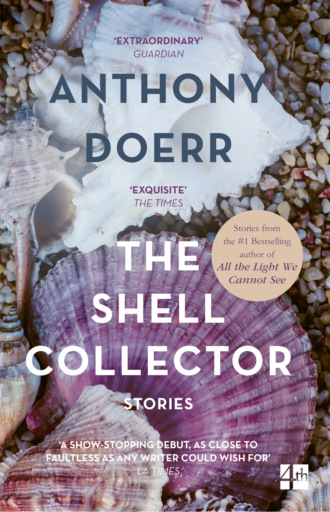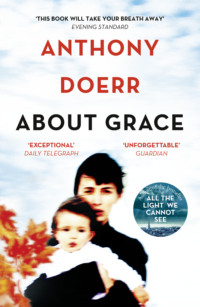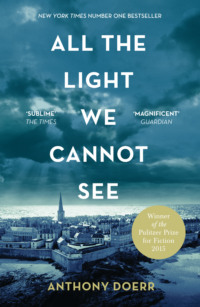
Полная версия
The Shell Collector
In Lamu the streets were crowded and the street vendors were out, grilling plantains or curried goat over driftwood coals. Pineapples were being sold on sticks, and children moved about yoked with boxes from which they hawked maadazi or chapatis spread with ginger. The Jims and the shell collector bought kebabs and sat in an alley, their backs against a carved wooden door. Before long a passing teenager offered hashish from a water pipe, and the Jims accepted. The shell collector smelled its smoke, sweet and sticky, and heard the water bubble in the pipe.
“Good?” the teenager asked.
“You bet,” the Jims coughed. Their speech was slurred.
The shell collector could hear men praying in the mosques, their chants vibrating down the narrow streets. He felt a bit strange, listening to them, as if his head were no longer connected to his body.
“It is Taraweeh,” the teenager said. “Tonight Allah determines the course of the world for next year.”
“Have some,” one of the Jims said, and shoved the pipe in front of the shell collector’s face. “More,” the other Jim said, and giggled.
The shell collector took the pipe, inhaled.
It was well after midnight. A crab fisherman in a motorized mtepe was taking them up the archipelago, past banks of mangroves, toward home. The shell collector sat in the bow on a crab trap made from chicken wire and felt the breeze in his face. The boat slowed. “Tokeni,” the fisherman said, and the shell collector did, the Jims with him, splashing down from the boat into chest-deep water.
The crab boat motored away and the Jims began murmuring about the phosphorescence, admiring the glowing trails blooming behind each other’s bodies as they moved through the water. The shell collector took off his sandals and waded barefoot, down off the sharp spines of coral rock, into the deeper lagoon, feeling the hard furrows of intertidal sand and the occasional mats of algal turf, fibrous and ropy. The feeling of disconnectedness had continued, been amplified by the hashish, and it was easy for him to pretend that his legs were unconnected to his body. He was, it seemed suddenly, floating, rising above the sea, feeling down through the water into the turquoise shallows and coral-lined alleys. This small reef: the crabs in their expeditions, the anemones tossing their heads, the tiny blizzards of fish wheeling past, pausing, bursting off…he felt it all unfold simply below him. A cowfish, a triggerfish, the harlequin Picasso fish, a drifting sponge—all these lives were being lived out, every day, as they always had been. His senses became supernatural: beyond the breaking combers, the dappled lagoon, he heard terns, and the thrum of insects in the acacias, and the heavy shifting of leaves in avocado trees, the sounding of bats, the dry rasping of bark at the collars of coconut palms, spiky burrs dropping from bushes into hot sand, the smooth seashore roar inside an empty trumpet shell, the rotting smell of conch eggs beached in their black pouches and far down the island, near the horizon—he could walk it down—he knew he would find the finless trunk of a dolphin, rolling in the swash, its flesh already being carted off, piece by piece, by stone crabs.
“What,” the Jims asked, their voices far-off and blended, “does it feel like to be bitten by a cone shell?”
What strange visions the shell collector had been having, just now. A dead dolphin? Supernatural hearing? Were they even wading toward his kibanda? Were they anywhere near it?
“I could show you,” he said, surprising himself. “I could find some small cones, tiny ones. You would hardly know you’d been bitten. You could write about it.”
He began to search for cone shells. He waded, turned in a circle, became slowly disoriented. He moved out to the reef, stepping carefully between the rocks; he was a shorebird, a hunting crane, his beak poised to stab down at any moment, to impale a snail, a wayward fish.
The reef wasn’t where he thought it was; it was behind him, and soon he felt the foam of the waves, long breakers clapping across his back, churning the shell fragments beneath his feet, and he sensed the algal ridge just ahead of him, the steep shelf, the rearing, twisting swells. A whelk, a murex, an olive; shells washed past his feet. Here, this felt like a cone. So easy to find. He spun it, balanced its apex on his palm. An arrhythmic wave sucker-punched him, broke over his chin. He spit saltwater. Another wave drove his shin into the rocks.
He thought: God writes next year’s plan for the world on this night. He tried to picture God bent over parchment, dreaming, puzzling through the possibilities. “Jim,” he shouted, and imagined he heard the big men splashing toward him. But they were not. “Jim!” he called. No answer. They must be in the kibanda, hunkered at the table, folding up their sleeves. They must be waiting for him to bring this cone he has found. He will press it into the crooks of their arms, let the venom spring into their blood. Then they’d know. Then they’d have their story.
He half-swam, half-clambered back toward the reef and climbed onto a coral rock, and fell, and went under. His sunglasses came loose from his face, pendulummed down. He felt for them with his heels, finally gave up. He’d find them later.
Surely the kibanda was around here somewhere. He moved into the lagoon, half-swimming, his shirt and hair soaked through. Where were his sandals? They had been in his hand. No matter.
The water became more shallow. Nancy had said there was a pulse, slow and loud. She said she could still hear it, even after she woke. The shell collector imagined it as a titanic pulse, the three-thousand-pound heart of an ice whale. Gallons of blood at a beat. Perhaps that was what he heard now, the drumming that had begun in his ears.
He was moving toward the kibanda now, he knew. He felt the packed ridges of lagoon sand under his soles. He heard the waves collapsing onto the beach, the coconut palms above rustling husk on husk. He was bringing an animal from the reef to paralyze some writers from New York, perhaps kill them. They had done nothing to him, but here he was, planning their deaths. Was this what he wanted? Was this what God’s plan for his sixty-some years of life led up to?
His chest was throbbing. Where was Tumaini? He imagined the Jims clearly, their damp bodies prone in their sleeping bags, exhaling booze and hashish, tiny siafu biting their faces. These were men who were only doing their jobs.
He took the cone shell and flung it, as far as he could, back into the lagoon. He would not poison them. It felt wonderful to make a decision like this. He wished he had more shells to hurl back into the sea, more poisons to rid himself of. His shoulder seemed terribly stiff.
Then, with a clarity that stunned him, a clarity that washed over him like a wave, he knew he’d been bitten. He was lost in every way: in this lagoon, in the shell of his private darkness, in the depths and convolutions of the venom already crippling his nervous system. Gulls were landing nearby, calling to each other, and he had been poisoned by a cone shell.
The stars rolled up over him in their myriad shiverings. His life had made its final spiral, delving down into its darkest whorl, where shell tapered into shadow. What did he remember, as he faded, poisoned finally, into the tide? His wife, his father, Josh? Did his childhood scroll by first, like a film reel, a boy under the northern lights, clambering into his father’s Bell 47 helicopter? What was there, what was the hot, hard kernel of human experience at his center—a dreamy death in water, poison, disappearing, dissolution, the cold sight of his arctic origins or fifty years of blindness, the thunder of a caribou hunt, lashing bullets into the herd from the landing strut of a helicopter? Did he find faith, regret, a great sad balloon of emptiness in his gut, his unseen, unknown son, just one of Josh’s beautiful unanswered letters?
No. There was no time. The venom had spread to his chest. He remembered this: blue. He remembered how that morning one of the Jims had praised the blue body of a reef fish. “That blue,” he’d said. The shell collector remembered seeing blue in ice fields, in Whitehorse, as a boy. Even now, fifty-five years later, after all his visual memories had waned, even in dreams—the look of the world and his own face long faded—he remembered how blue looked at the bottom pinch of a crevasse, cobalt and miraculous. He remembered kicking snow over the lip, tiny slivers disappearing into an icy cleft.
Then his body abandoned him. He felt himself dissolve into that most extravagantly vivid of places, into the clouds rising darkly at the horizon, the stars blazing in their lightless tracts, the trees sprouting up from the sand, the ebbing, living waters. What he must have felt, what awful, frigid loneliness.
The girl, Seema, the mwadhini’s daughter, found him in the morning. She was the one who had come, every week since her recovery, to stock his shelves with rice and dried beef, to bring him toilet paper and bread and what mail he had and Uhu milk in paper cartons. Rowing there from Lamu with her nine-year-old arms, out of sight of the island, of other boats, with only the mangroves to see, sometimes she would unpin her black wraparound and let the sun down on her shoulders, her neck, her hair.
She found him awash, faceup, on a stretch of white sand. He was a kilometer from his home. Tumaini was with him, curled around his chest, her fur sopped, whining softly.
He was barefoot; his left hand was badly swollen, the fingernails black. She took him up, his body that smelled so much like the sea, of the thousands of boiled gastropods he had tweezered from shells, and heaved him into her little boat. She fitted the oarlocks and rowed him to his kibanda. Tumaini raced alongside, bounding along the shore, pausing to let the boat catch up, yelping, galloping off again.
When they heard the girl and the dog come clattering up to the door, the Jims burst from their sleeping bags, their hair matted, eyes red, and helped in the best ways they knew. They carried the shell collector in and with the girl’s help radioed Dr. Kabiru. They wiped the shell collector’s face with a washcloth and listened to his heart beating shallowly and slowly. Twice he stopped breathing and twice one of those big writers put his mouth on the shell collector’s and blew life into his lungs.
He was numb forever. What clockless hours passed, what weeks and months? He didn’t know. He dreamed of glass, of miniature glassblowers making cone teeth like tiny snow-needles, like the thinnest bones of fish, vanes on the arms of a snowflake. He dreamed of the ocean glassed over with a thick sheet and him skating out on it, peering down at the reef, its changing, perilous sculpture, its vast, miniature kingdoms. All of it—the limp tentacles of a coral polyp, the chewed floating body of a clownfish—was gray and lonesome, torn down. A freezing wind rushed down his collar, and the clouds, stringy and ragged, poured past in a terrible hurry. He was the only living thing on the whole surface of the earth and there was nothing to meet, nothing to see, no ground to stand on.
Sometimes he woke to chai pouring into his mouth. He felt his body freeze it, ice chunks rattle through his guts. It was Seema who warmed him, finally. She visited every day, rowing from her father’s jumba to the shell collector’s kibanda, under the white sun, over the turquoise waters. She nursed him out of bed, shooed the siafu from his face, fed him toast. She began walking him outside and sitting with him in the sun. He shivered endlessly. She asked him about his life, about shells he had found and about the cone shell that saved her life. Eventually she began to hold his wrists and walk him out into the lagoon and he shivered whenever air touched his wet skin.
The shell collector was wading, feeling for shells with his toes. It had been a year since he’d been bitten.
Tumaini perched on a rock and sniffed at the horizon where a line of birds threaded along beneath stacks of cumulus. Seema was on the reef with them, as she had been nearly every day, her shoulders free of her wraparound. Her hair, usually bound back, hung across her neck and reflected the sun. What comfort it was to be with a person who could not see, who did not care anyway.
Seema watched as a school of fish, tiny and spear-shaped, flashed just below the surface of the water. They stared up at her with ten thousand round eyes, then turned lazily. Their shadows glided over the rutted sand, over a fern-shaped colony of coral. Those are needlefish, she thought, and that is Xenia soft coral. I know their names, how they rely on each other.
The shell collector moved a few meters, stopped and bent. He had come across what he thought was a bullia—a blind snail with a grooved, high-spired shell—and he kept his hand on it, two fingers resting lightly on the apex. After a long moment, waiting, tentative, the snail brought its foot from the aperture and resumed hauling itself over a ridge of sand. The shell collector, using his fingers, followed it for a while, then stood. “Beautiful,” he murmured. Beneath his feet the snail kept on, feeling its way forward, dragging the house of its shell, fitting its body to the sand, to the private unlit horizons that whorled all around it.
Конец ознакомительного фрагмента.
Текст предоставлен ООО «ЛитРес».
Прочитайте эту книгу целиком, купив полную легальную версию на ЛитРес.
Безопасно оплатить книгу можно банковской картой Visa, MasterCard, Maestro, со счета мобильного телефона, с платежного терминала, в салоне МТС или Связной, через PayPal, WebMoney, Яндекс.Деньги, QIWI Кошелек, бонусными картами или другим удобным Вам способом.





